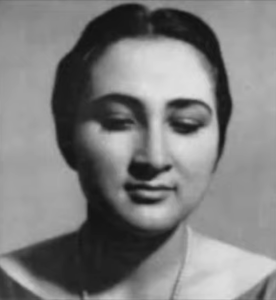Podcast: Play in new window | Download (Duration: 1:29:01 — 96.9MB) | Embed
Subscribe: Spotify | TuneIn | RSS | More
A year ago, I posted an episode entitled “The Haunted Opera House” that featured a wide range of spooky, witchy, Halloween-appropriate 20th century operas from Prokofiev to Penderecki. This year I focus in on one of the works from that episode, Ottorino Respighi’s 1934 masterpiece La Fiamma, based on a 1908 play on witch hunts and witchcraft in 16th century Norway by the novelist and playwright Hans Wiers-Jenssen entitled Anna Pedersdotter, the Witch. This work also formed the basis for the Carl Dreyer film Day of Wrath. Respighi and his librettist Claudio Guastalla transferred the action to seventh-century Ravenna in the early days of Christianity. Musically the work combines Respighi’s interest with Gregorian chant, modal scales and harmonies, and the work of Claudio Monteverdi with his penchant for stunning orchestrations. The dramatically potent result was his most famous operatic work, but after an initial succès d’estime, it has only retained the slightest hold on the operatic fringes. Nevertheless, the heroine Silvana in particular is a role that great sopranos have made their own over the years, including Claudia Muzio, Gina Cigna, Giuseppina Cobelli, and Rosa Raisa (none of whom sadly recorded any excerpts) through Montserrat Caballé, Nelly Miricioiu, Ilona Tokody, Stefka Evstatieva, and Mara Coleva. I tell the story of the opera while offering substantial excerpts, which, in addition to the sopranos mentioned above, also include such operatic heavyweights as James McCracken, Carlo Tagliabue, Deborah Voigt, Giacinto Prandelli, Delcina Stevenson, Felicity Palmer, Juan Pons, Anna Moffo, and Mignon Dunn, among others. Just the thing to scare you out of your skin this Halloween!
Countermelody is a podcast devoted to the glory and the power of the human voice raised in song. Singer and vocal aficionado Daniel Gundlach explores great singers of the past and present focusing in particular on those who are less well-remembered today than they should be. Daniel’s lifetime in music as a professional countertenor, pianist, vocal coach, voice teacher, and journalist yields an exciting array of anecdotes, impressions, and “inside stories.” At Countermelody’s core is the celebration of great singers of all stripes, their instruments, and the connection they make to the words they sing. By clicking on the following link (https://linktr.ee/CountermelodyPodcast) you can find the dedicated Countermelody website which contains additional content including artist photos and episode setlists. The link will also take you to Countermelody’s Patreon page, where you can pledge your monthly support at whatever level you can afford. Bonus episodes available exclusively to Patreon supporters are currently available and further bonus content including interviews and livestreams is planned for the upcoming season.



